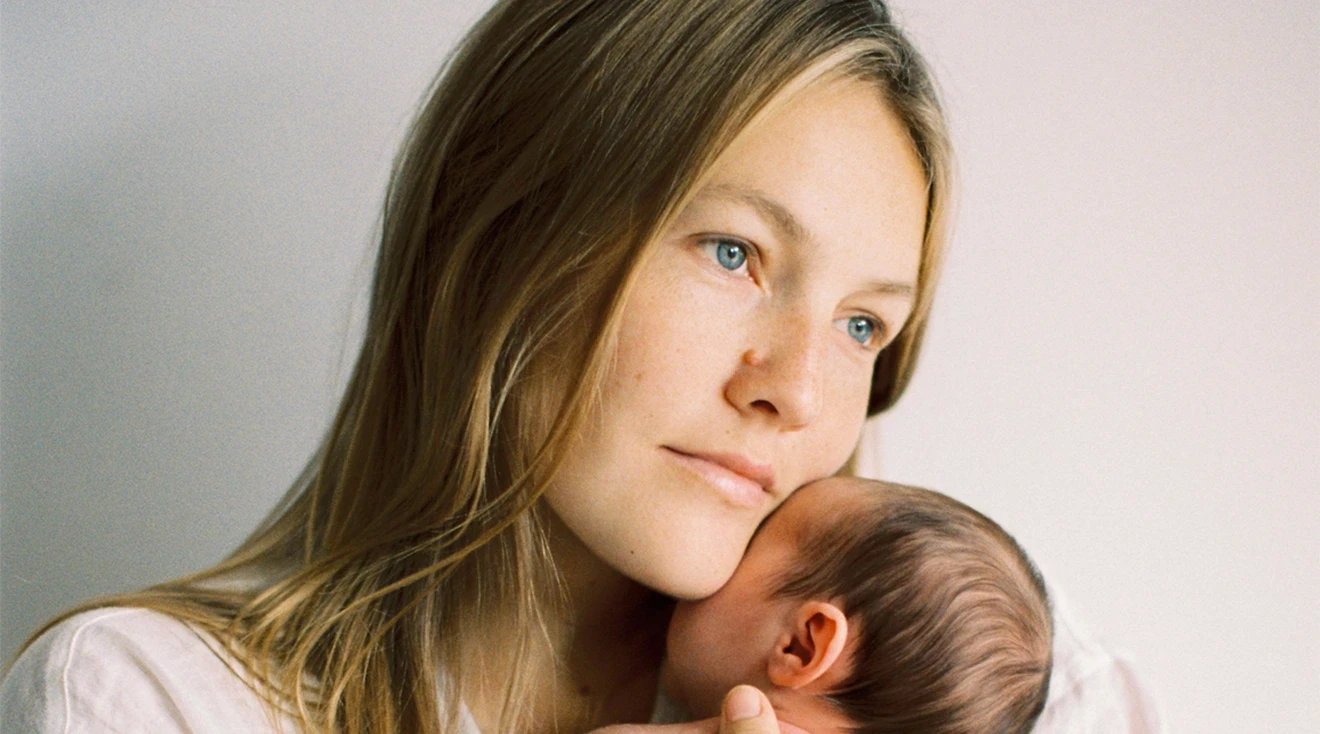How the Concept of ‘Matrescence’ Can Help You Navigate Parenthood
Discussing the mental health challenges of the postpartum period has become far more accepted in recent years. But something we talk about a lot less is the holistic way in which new parents can change in the months—and years—following their babies’ births. The word for this transition, first coined in the 1970s, is matrescence. Ahead, read about how understanding the term can help you embrace this period of transformation.
A term originally coined by anthropologist Dana Raphael in the mid-1970s, matrescence is essentially the process of becoming a mother. Aurélie Athan, PhD, a clinical psychologist and faculty member at Teachers College, Columbia University, revived the term for the modern era.
“I called for a developmental model of motherhood to normalize rather than pathologize the psychological transition women were experiencing, to ease suffering and finally shift the paradigm,” Athan writes on her website. Since then, matrescence has spread from academia to the general public.
New parents can change in countless ways during the period of matrescence, and there are many individual differences in the way people experience it.
“The seismic shift happens in every slice of the human pie, biologically, psychologically, socially, economically, existentially, ecologically and spiritually,” says Athan. At the same time that a mom’s body might be undergoing postpartum hormonal changes, she might be questioning where she belongs socially. “You feel a lot like the first time you sat down in the cafeteria in high school and [you’re] wondering, who are your people?” says Athan. Your relationships with your family and partner might also undergo a shift. At the same time, you might start to question your values and belief systems.
“It’s much like a caterpillar becoming a butterfly,” Athan says. “It undergoes a ‘gooey’ period in which there’s a sense of a breakdown, just like in adolescence”—and you might come out a completely different person.
When Athan works with her clients, she says she often observes their shoulders drop in relief when they finally “get” the term. She says that just knowing about it can help new parents feel more understood. “I think because it’s a process-oriented term, they understand it; we’ve all been through adolescence, and they understand that,” she says. (And, yes, in many ways, matrescence is similar to the all-encompassing, transformative nature of adolescence.)
The simple truth is that giving a word to this often tumultuous and chaotic process can help new parents make sense of it, says Athan. “Words create worlds,” she says. “They really do.” While the concept is still relatively new, Athan says she’d love to see more pediatricians and ob-gyn clinics have in-house social workers or counselors to speak with new parents about the transition to motherhood.
The first step to successfully navigating matrescence is giving it a name, reiterates Athan, adding that being aware of the term helps her clients better express their feelings. “First and foremost, I experience the reduction of shame and stigma over how challenging [parenting] feels—and I don’t think anybody can really know how challenging parenting is until they experience it,” she says.
Matrescence coaching
If you need to reach out for maternal mental health support, matrescence coaching could be the right option for you.
Chelsea Robinson, MSW, LCSW, a clinical social worker and trauma therapist, conducts matrescence coaching, and says that clients in the first five years of parenthood often face major life transitions like returning to work or deciding whether to have another child. They feel burned out from doing it all, and might be experiencing mom guilt and general overwhelm, or they could be looking to find fulfillment in identities outside of being a mom.
“Matrescence coaching is not clinical therapy and is meant for top-level support,” Robinson says. “It’s actionable, solution-focused sessions intended to uplift, nurture and encourage any woman dedicated to processing her identity since she became a mother.”
Athan says that matrescence is “lifelong in the sense that once you become a parent, you always forever will be,” even as you go through different stages of parenthood and life.
“Just like any relationship, you grow and evolve and change, and then you have to—as a result—grow into a new shape together,” Athan says. Robinson notes that for many new parents, acknowledging that matrescence is lifelong helps relieve some of the pressure. “They’re able to acknowledge that their postpartum experience is part of something so much bigger, and that, indeed, this is only a season,” she explains.
During the period of matrescence, a new parent might start asking big life questions and begin rethinking some of their previous choices and long-held beliefs. It’s a fresh chapter that could lead you in a new life direction.
No matter what changes you go through, matrescence can feel like a completely new beginning and an opportunity to grow in profound ways. And the conversation around it is just getting started.
“When I started, there wasn’t anything in the space other than taking your prenatal vitamin, thinking about how to set yourself off on the right developmental foot,” Athan says. “This is just the beginning. I hope that the word can sort of just turn the light on.”
Plus, more from The Bump:
Aurélie Athan, PhD, is a clinical psychologist and faculty member at Teachers College, Columbia University, in New York City who is reviving the term “matrescence” for the modern era. She teaches the first of its kind graduate-level course and certificate in reproductive psychology.
Chelsea Robinson, MSW, LCSW, is a clinical social worker, trauma therapist, postpartum doula and founder of Mama’s Modern Village.
Conspectus Borealis, The Changing Perspective on Adolescence, April 2020
Navigate forward to interact with the calendar and select a date. Press the question mark key to get the keyboard shortcuts for changing dates.




















































